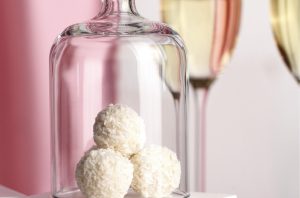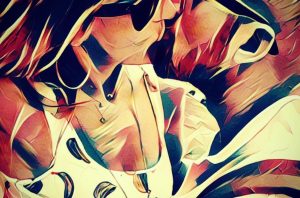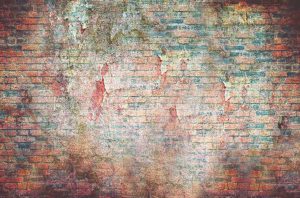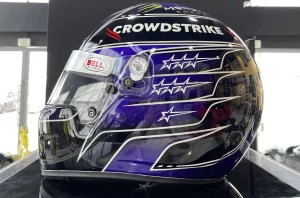
A new generation of contemporary Southeast Asian artists are making their mark in the region and beyond.
Born and bred in Singapore (1980), Jolene Lai currently resides and works in Los Angeles. She studied painting at LASALLE College of the Arts, then graphic design at University of California, Los Angeles (UCLA).
In the past few years, Jolene has had solo exhibitions both in Singapore and in Los Angeles: ‘Allegory’ with Singapore-based Galerie Sogan & Art in 2012, as well as ‘After Midnight’ and ‘Play’ with Los Angeles-based Thinkspace Art Gallery in 2013 and 2014 respectively. She has also taken part in several art fairs with Galerie Sogan & Art, such as in ‘Nocturne: Art Stage Singapore SEA Platform’ as part of Art Stage 2014, Art Taipei 2014 and Art Stage Singapore once again in 2015, as well as in SCOPE both at Miami Beach and in New York with Thinkspace Art Gallery.
Jolene’s canvas and paper works are simultaneously familiar and otherworldly, turning everyday settings and items on their heads to tell fresh and imaginative narratives. Featuring a cast of female protagonists, Jolene’s artworks are richly detailed and colored, bringing to life private reveries for the viewer’s interpretation.
What has been your most significant challenge to date as an artist?
Not everyone perceives what an artist does for a living as anything more than a hobby. I find myself approaching each new work with more discipline and determination, which has helped me achieve what I have been able to accomplish so far.
What changes your work from piece to piece?
There is a tendency for me to integrate something different that I have yet to explore in each new work. I think the essence of each piece would be the subjects I conjure from various intriguing tales I come across. They are complemented with familiar urban landscapes that help to frame the narrative. Every new painting has its own set of unique characters, scenes and fantasies.
You’ve mentioned that Chinese mythology and fashion photography are among them. What makes them such rich repositories of information?
I was curious about the origins of each Chinese myth. The juxtaposition between the clothing and settings in fashion editorials is also a constant source of inspiration.
What other sources of inspiration do you go to?
There are no specific avenues I go to for inspiration. Notions may be built from any content that has arresting qualities. Lately, I do find myself watching anime and noticing details that seem minute or mundane, yet play such important roles in the emphasis of the ambience or the portrayal of a character’s emotions.
Which artist do you look upon as a major influence in your own work?
The mood and aura prevalent in Edward Hopper’s paintings inspire me, especially ‘New York Movie’ (1939) which captures an usher’s moment of immersion in her own thoughts, contrasting with the audience’s immersion in the act of watching a film.
You use social media to share your exhibitions, finished artworks, press coverage, and even your works in progress and creative process. For example, for the Allegory series, you provide the Chinese myth that is behind the works, such as the one of Miao Shan for ‘The Butcher’. What is the motivation behind doing so, and how have they benefited you as an artist?
I personally enjoy the frequent posts from the artists I follow. Their works in progress and lifestyle postings shed light on their techniques and inspirations, which in turn offer glimpses of their attitudes and personalities. When you acquire an artwork, you are essentially collecting a part of an artist’s history. Social media provides room for a wider audience to learn, understand and relate to the artists they are interested in.
Could you tell us about your experiences working with Galerie Sogan & Art and Thinkspace Gallery? How have they helped you to reach out to different audiences?
One of the key factors that contributes to an artist’s success is finding galleries that are interested in promoting and growing with their artists. Both galleries I work with are large at heart, aggressive at marketing, and committed to involving their artists in important curated shows and prominent art fairs in a variety of cities. There is also a sense of a close-knit familial relationship that I share with both Sogan and Thinkspace, which I very much appreciate.
There are scenes from your works that one recognises to be from Singapore, such as in the ‘Playground’ series showcased at the Art Stage SEA platform in 2014: ‘Lotus’ with the bus stop, ‘Broken Telephone’ with the coffee shop, and ‘Night Market’ with the wet market. Are you more conscious of your Singaporean identity living far away from the city?
Only on days when I reminisce about a plate of chicken rice and find it almost impossible to find one that tastes as good as the ones back home!
I am simply very conscious of my surroundings in my daily life and in my travels. I am always searching for great sets for the characters I fabricate in my stories.
There is duplication and multiplication of identical female characters in your works, such as in ‘Mitosis’ and ‘Broken Telephone’ respectively. Could you explain your intentions with these?
Being an only child comes with a certain degree of loneliness that I have grown accustomed to. Playtime often meant having to play several roles at once. I think this nostalgia continues to resonate in my paintings.
Have you been surprised by the audience’s reactions to your artworks?
I am constantly surprised by the comments I receive about my paintings. People often see things in them that I had not noticed before. That is quite remarkable to me.
What are you working on right now?
A solo exhibition with Thinkspace that is taking place early 2017 in Los Angeles. This time, I will be focusing on a series that will explore the different phases of adolescence. It will be my first solo show involving a much larger body of works, so I cannot wait to share all the works in progress I have documented to date.
Based on your own experience as an artist, what advice would you give to young artists just starting out?
Be disciplined. I like to ‘clock in and out’ when I am working so that I have an actual record I can refer to. Time tracking gives an idea of one’s speed and provides insight into how one’s hours should be spent. It is a good practice for better planning when it comes to project deadlines and signing up for new gigs. Also, invest in good coffee mugs.
By Art Republik
If you would like to purchase ring finger as shown below email Concierge at sales@slaynetwork.co.uk
Details
Price: $593.6
Not Framed
Graphite on paper
4.7 x 4.7 in / 12 x 12 cm
(Dimensions are of artwork only)
2017










